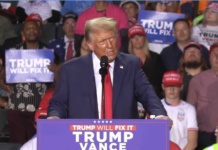The UK is set to play a leading role in global efforts to tackle the illegal wildlife trade, which involves international criminal networks and undermines the economies of trading partners in Africa, Latin America and Asia.

Defra is managing a £13 million fund over four years (2014-2018). This Illegal Wildlife Trade (IWT) Challenge Fund Round 2 (2015) application form is currently open. The deadline for submitting IWT application is midnight on Monday 12 October 2015.
Up to £5 million of UK Government funding will made available to initiatives around the world to help tackle the cruel trade in rhino horn, elephant ivory and other illegal wildlife products, according to Defra Minister Rory Stewart.
The illegal wildlife trade is a serious criminal industry worth more than £6 billion each year threatening both wildlife and people. Poaching is rife in parts of Africa, with 1,293 rhinos killed last year and over 20,000 elephant deaths attributed to poaching in 2013.
The Defra’s Illegal Wildlife Trade Challenge Fund will support practical action against wildlife crime by strengthening law enforcement, reducing demand for illegal products and by helping communities develop sustainable conservation schemes.
Speaking at a meeting on the illegal wildlife trade at the Zoological Society of London, Defra Environment Minister Rory Stewart said:
The illegal trade in animal products is putting some of our most iconic species like elephants, rhinos and tigers in severe danger. This is not just an environmental challenge: tackling this trade means tackling corruption, strengthening security and improving livelihoods.
This funding will help to reduce the supply of illegal wildlife products by supporting local communities to find new ways of earning a living and stopping poachers and criminal networks from controlling this barbaric trade. It will also support action to reduce demand for these products.
International Development Minister and FCO Minister for Africa Grant Shapps said: The illegal wildlife trade is a global problem, and is not confined to any one country or even continent. The range of projects helped by this Challenge Fund already is testament to that, and demonstrates valuable work being done worldwide to stop the killing.
It’s absolutely right that the UK’s development budget is tackling international wildlife issues, giving communities a real alternative to this horrific trade and helping to protect the world’s most endangered animals. I am determined that the UK will keep raising the illegal wildlife trade at every opportunity to ensure that we have a world worth leaving to the next generation.
Director of Conservation Programmes at ZSL Professor Jonathan Baillie said: The 2014 London Conference on the Illegal Wildlife Trade greatly escalated political will to address this crisis, but greater effort is needed on the ground if we are to stop the needless slaughter of iconic species such as elephants, rhino and pangolins.
ZSL and the conservation community greatly welcome Defra’s Illegal Wildlife Challenge Fund, which will provide essential resources to help curb demand, sustainable livelihoods to communities effected by illegal wildlife trade and help to strengthen the criminal justice system and enforcement on the ground.’
Since its launch in 2014, Defra’s Illegal Wildlife Trade Challenge Fund, with support from the Department for International Development, has supported 19 projects in developing countries to protect endangered species such as rhinos, elephants and snow leopards, and stop the criminality and conflict associated with international trafficking of illegal wildlife products.








